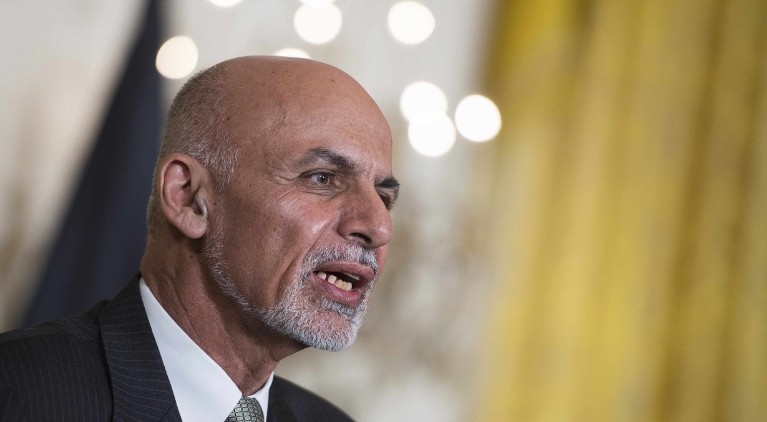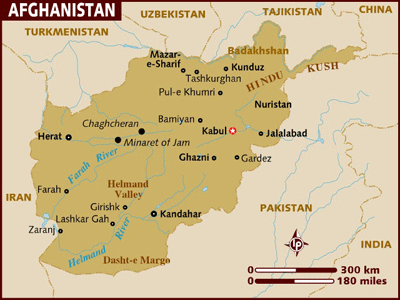Taliban’s legitimacy in Afghanistan
February 28, 2018 | Expert Insights

In a bid to bring peace to the region, Afghan President Ashraf Ghani has made the unprecedented offer to officially recognize the Taliban as a legitimate political group in the region. He has asked the group to come to the negotiating table with any “precondition”. Could this end the 16 year conflict between the Taliban and the US government?
Background
Landlocked and mountainous, Afghanistan is one of the most unstable nations in the world. Much of its economy and its infrastructure are in ruins and the nation relies heavily on foreign aid. The region is home to multiple terror groups such as ISIS, Taliban, al Qaeda and Daesh.
This chronic instability has forced many citizens to become refugees. The region is plagued by multiple terror attacks. In 2016, 4,561 people were killed by terrorists in Afghanistan. There were 1,340 terrorist attacks that year alone.
The number of terror attacks has continued to rise in recent years. Vanda Felbab-Brown, an expert in the field, testified to the Subcommittee on Terrorism, Nonproliferation, & Trade of the House Foreign Affairs Committee noting that there has been a resurgence of terrorism in the country. Nicholas Haysom, the U.N. special envoy in Afghanistan noted in March 2016 that if Afghanistan merely survived 2016, the UN would consider its mission a success.
In addition, war continues to rage on in the region. The US-led invasion, which took place in 2001, has still not ended, and is thus the longest war waged in American history.
Taliban
The Taliban have resiliently held on to rural terrain and the group has managed to conduct repeated high-profile attacks in Kabul and other cities. Its leaders have created an organizational structure in which the top echelons provide strategic guidance and oversight while military and political officials in the field make operational and tactical decisions. The Taliban has also managed to retain some organizational cohesion, despite the loss of two leaders in the past few years.
Yet the Taliban has faced serious setbacks. After temporarily seizing the northern city of Kunduz in September 2015, the group lost control of it within days as U.S. and Afghan forces rallied to take it back. In 2016, the Taliban put pressure on several provincial capitals, at times simultaneously, but could not overrun any of them. In 2017 it failed to mount a sustained threat against any provincial capital.

Analysis
After the 9/11 terror attacks in New York, the United States made the decision to wage a war in Afghanistan. The country noted that it wanted to root out terror groups, especially Taliban, from the region. It is the longest war in the history of the United States. The US has spent $850 billion on this war and about 2,400 members of the armed forces have been killed from 2011 to early 2017. In 2017, it was reported that the US would increase its ground troops in Afghanistan by over 4,000.
In February 2018, Afghan President Ashraf Ghani invited the Taliban to the negotiating table and noted that these talks will not come with any precondition. He also made the unprecedented offer to officially recognize the Taliban as a legitimate political group in the region and provided a series of assurances.
"Taliban leaders and all members, the decision is in your hands. Accept peace, come to the negotiating table," said Ghani. "We are making this offer without preconditions in order to lead to a peace agreement." He was speaking at a conference attended by officials from around 25 countries involved in the ‘Kabul Process.’
“The Taliban are expected to give inputs to the peace-making process, the goal of which is to draw the Taliban, as an organization, to peace talks,” he said, adding that he would not “pre-judge” any group seeking peace. However, he warned the group will have to accept the present Afghan government and follow the rule of the law.
In the past, Ghani has been critical of the Taliban and have referred to them as terrorists. The Taliban have also indicated a softened stance in recent months having offered to engage in talks with the US. The American government has so far refused direct talks with Kabul. The group has said that any talks with the US government will have to take place in its Doha office.
Ghani spoke about Taliban’s shifted stance noting, “The Taliban show awareness of these contextual shifts and seem to be engaged in a debate on the implications of acts of violence for their future.”
Assessment
Our assessment is that this marks a significant shift in the political landscape in Afghanistan and also presents an opportunity to end a war that has been waged for over a decade and a half. However, there are multiple factors that will concern nations like India that have a stake in Afghanistan’s future. With regards to India, a legitimate Taliban will pose a greater risk to its borders as many of Taliban fighters continue to be trained in Pakistan. The country, while engaged in nation building in Afghanistan, has refused to have any formal talks with Taliban.








Comments